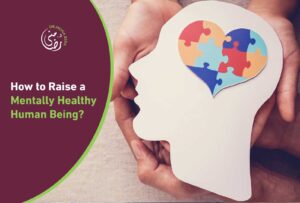It is said that the 20s are your most important years, and yet it is also true that they are often the most unstable. If this has always been the case, then recent years have not made it any easier as many major life decisions are being made when there is less certainty than ever in every aspect of our lives. Perhaps it is for these reasons that it has become more difficult to find the source of a general anxiety and dissatisfaction that is clearly noticeable among today’s youth. More and more, it seems that this anxiety is less an individual, personal issue or even, as many often assume the case to be, an issue in family life than it is a social phenomenon. This is not to say that there are not many who deal with individual mental health issues, nor is it to say that older or younger generations do not have them, but that there is a specific concern shared among the youth that leads to a general state of anxiety with no clear cause. These have only become clearer over the past few months as a result of the Covid-19 pandemic, which only succeeded in generating more uncertainty in everyday life.
Although it may be difficult to locate the source, we can still identify areas of life where this anxiety is felt. The most obvious, and among the most important, is a general awareness of the economic situation and the resulting job insecurity. There is a strong sense of unfairness that the large investments made by families into guaranteeing strong education, whether locally or abroad, is not yielding the expected return. While it is certain that older generations also struggled with economic issues, including recessions or inflation in their own youth, what is now different is the lack of a clear career path. Low starting salaries and slow promotion cycles results in high turnover rates, where individuals often leave places of employment after a year or two in search of better conditions. While there are indeed many exceptions, the point is rather that the state of the job market generally has created a deep sense of insecurity for individuals who cannot see a short-term future in front of them. This has resulted in tensions within some families, where the idea of cycling between jobs seems risky and foreign to older generations who spent the majority of their professional lives in a single place of employment. Whereas older generations can navigate recession because they have already secured their futures, youth experience anxiety knowing they have to achieve the most basic and most important life events while bearing the heavier burden of an economic crisis.
Perhaps among the most primary sources of anxiety for today’s youth, and a major source of conflict within families, is the question of marriage. Individuals in their 20s feel pressured to find a suitable marriage, and yet also realize that it is harder than ever to sustain their own independence financially. This is coupled by increasing divorce rates among elder generations, meaning that many families with children in their teens or 20s are experiencing marital concerns resulting in a lack of confidence in the ability to form meaningful, long-term relationships. A number of factors therefore contribute to this feeling of insecurity in relationships, including economic insecurity, lack of confidence in partners because of messy family lives that are becoming more apparent late in life, as well as a widening generational gap that means the youth have different priorities, ambitions, and lifestyle patterns than their parents. This generational gap appears in several forms in daily life, and is often experienced a struggle between elder generations of the household with the youth. Many of these issues boil down to feelings of helplessness or impotence to control basic aspects of life, which has only been made worse because of the effects of Covid-19. High unemployment, low quality of life, and the inability to form long-term plans because of uncertainty means many do not feel comfortable considering a serious relationship. Added pressure from families who try to apply a pattern of life they themselves followed, or their own parents followed, to a very different time only causes further anxiety, frustration, and conflict.
These conflicts are made worse by the generation gap that makes the youth the most informed and interconnected generation. Social media and the news networks have given us immediate access to everything, so that the rate of change between the youth and older generations today is much quicker than between generations before us. Over the past ten years even, daily life is changing at a very accelerated pace. This has resulted in an increased global consciousness and sensitivity to global and local issues. For example, recent anti-sexual harassment and gender equality campaigns have brought to the surface a very shocking realization about the violence in our own communities, often involving people we know. A generational gap is caused by many factors, but one of which is lack of communication. Much of this involves conversations about harassment and gender rights, where the youth feel more vocal expressing their views about these issues than their parents do. Horrific situations like these have shown the extent many teenagers and young adults were unwilling or felt uncomfortable talking to their families about important issues, which points to a broader lack of communication and trust within families. The effects of social media on interpersonal relationships, self-esteem, and anxiety levels are well-known to everyone now, but in a world that is more interconnected than ever before, where are jobs often depend on being connected, it becomes more difficult to keep a safe distance from social media. Despite more attention than ever to mental health, there seem to be very few ways to protect against sensory overstimulation and data overload, leading to burnout and exhaustion from just the amount of exposure and from being exposed oneself.









